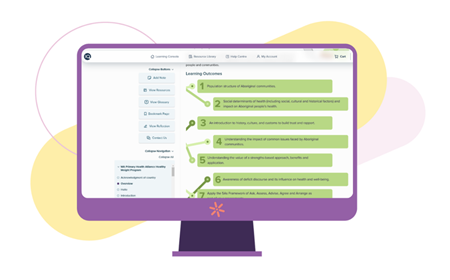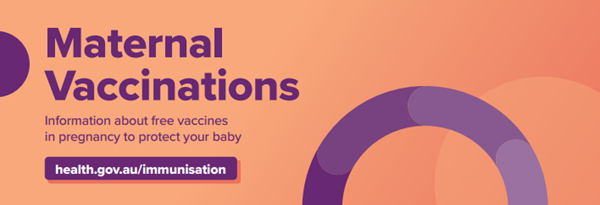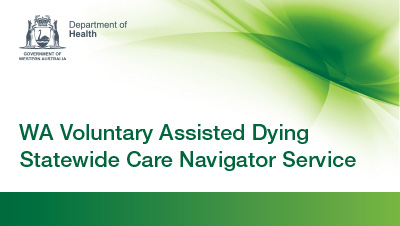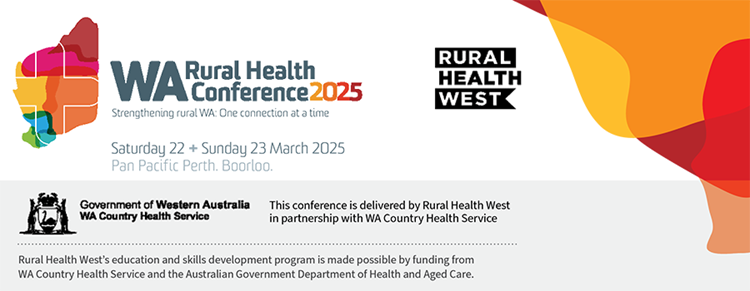Issue 214 – 20 February 2025

| Welcome to Practice Connect, a fortnightly update for practice managers, principals, nurses and administration staff on relevant issues, upcoming events and education. |
Chronic Conditions Management (CCM) Activation Series

In preparation for the Chronic Conditions Management (CCM) MBS item changes recommended by the MBS Review Taskforce, WA Primary Health Alliance invites your general practice to participate in our CCM Activation Series.
Join us on a journey of small, manageable changes that aim to maximise the benefits of MyMedicare for your practice and your patients, strengthening the relationships that patients have with your practice and care providers.
If you missed Activity 1, the aim of this activity was to engage patients returning to your practice for chronic disease management plans and team care arrangements in MyMedicare, and regular reviews in the future. You can access this activity here.
Activity 2 aims to raise awareness among your practice team of MyMedicare and the CCM changes, while supporting your team members to explore and document their roles for both MyMedicare and CCM.
Stay tuned for Activity 3 in an upcoming edition of Practice Connect, which will focus on MyMedicare patient engagement and registration, aiming to raise patient awareness and help your practice identify what MyMedicare means for your practice team and patient care, so you can communicate this to patients.
If you would like support from our team to implement any of the activities, call the Practice Assist help desk on 1800 2 ASSIST (1800 2 277 478 or 08 6278 7900) or email practiceassist@wapha.org.au
CCM Activation Series – Activity 2: Planning with your practice team

This activity aims to raise awareness among your practice team of MyMedicare and the Chronic Conditions Management (CCM) changes, while supporting your team to explore their roles in both MyMedicare and CCM.
By exploring and defining these roles, your practice team can work collaboratively to prepare for change and develop the processes, systems and skills needed to succeed. This approach will help ease your team through change and provide a shared document to help improve and empower each team member in their own role.
There are a range of ideas outlined below for you to tailor and modify to develop your own plan for change at your practice. We recommend that you document your plan using a Plan-Do-Study-Act template.
Activity outcomes
- Your practice team has a better understanding of MyMedicare (voluntary patient registration).
- Your practice team has a better understanding of the proposed CCM changes.
- Your practice team roles in MyMedicare and CCM are well defined, and each team member has a clear role and responsibilities.
Activity Ideas
| 1. Engage your practice team to inform them about MyMedicare and the changes to Chronic conditions management:
a. Schedule a team meeting or quick lunchtime catch-up to communicate the changes. |
| 2. Explore the benefits of MyMedicare with your practice team:
a. Share the MyMedicare Talking Points for General Practice resource with your practice team. If you plan to discuss these in an open forum, you may want to share these in advance and pose some general questions such as:
b. The MyMedicare GP Toolkit provides a summary of the current benefits of MyMedicare for general practices. It also includes a range of helpful resources that your practice can use to communicate with patients. |
| 3. Explore Chronic Conditions Management Changes with your practice team:
a. Share the CCM MBS Items Summary of Changes resource with your practice team. You may want to have a team discussion and pose some open questions such as:
b. For more information, visit the links below: |
| 4. Explore and document team roles and responsibilities related to MyMedicare and CCM:
a. Share the Practice Roles and Responsibilities for MyMedicare and CCM resource and the blank template with your team to help you get started.
|
For further information and support with QI activities and MyMedicare registrations, call the Practice Assist help desk on 1800 2 ASSIST (1800 2 277 478 or 08 6278 7900) or email practiceassist@wapha.org.au
Spotlight on: General practice accreditation

Did you know that the RACGP definition of general practice (for purposes of accreditation) was recently amended? If your practice was previously ineligible for accreditation, or is not a ‘traditional’ general practice, it may now be eligible under the new definition.
So why should your practice seek accreditation?
- Effective risk management and improved patient safety
- Community assurance that a high level of care is provided
- Build a culture of quality in the practice environment
- Develop the practice team skills and engagement in continuous quality improvement
- Eligibility to access financial incentives such as the Practice Incentives Program (PIP), Workforce Incentive Program (WIP) and MyMedicare incentives.
The National General Practice Accreditation (NGPA) scheme supports the accreditation of Australian general practices to the RACGP Standards for general practices and the RACGP Standards for point of care testing.
General practices who wish to gain formal accreditation can do so via an independent accreditation agency. Further information about these agencies can be found at Approved accrediting agencies under the NGPA Scheme.
To assist you in determining whether your practice is now eligible to become accredited under the new definition, the RACGP has released an interpretive guide which outlines the application of the Standards to non-traditional general practices.
The Australian Commission on Safety and Quality in Health Care has comprehensive information for general practices interested in seeking accreditation.
If you are interested in learning more about general practice accreditation and how WA Primary Health Alliance can support you in the accreditation journey, contact the Practice Assist Help Desk or get in contact with your Primary Care Navigator and QI Coach on 1800 2 ASSIST (1800 2 277 478) or 08 6278 7900 or via email practiceassist@wapha.org.au.
Supporting Aboriginal patients living with overweight and obesity through culturally safe care

New online training, available through WA Primary Health Alliance’s SHAPE website, equips health care professionals with the skills and knowledge to create a supportive and culturally safe environment for Aboriginal people to discuss weight-related health concerns.
The Aboriginal Weight Management eLearning modules promote culturally safe practices by fostering understanding of Aboriginal community values, social determinants of health, and the impact of weight stigma.
These eLearning modules are approved by the Royal Australian College of General Practitioners for 8.5 hours of educational activities and 2 hours of performance review.
Retirement of WA Primary Health Alliance CEO
WA Primary Health Alliance CEO, Learne Durrington, will step down from her role in early April this year to commence a well-deserved transition to retirement.
WAPHA Board Chair, Dr Richard Choong, said Learne has been a highly effective CEO, successfully stewarding the organisation through its establishment in 2015, several significant strategic and structural reviews, reform of the organisation’s governance and the pandemic.
Important update from the Central Referral Service
In response to several further queries that have arisen around the Central Referral Service (CRS) referral processing delays, the CRS team at the WA Department of Health have prepared this update to assist in clarifying the CRS and public outpatient referral process.
Please see information here for clarification of public outpatient referral processing at the CRS including which referrals should and should not be sent to the CRS, and what happens to a referral once it has been allocated to the public hospital system.
New Medicare handbook now available for providers

The new Understanding Medicare: Provider Handbook is designed to help health care professionals build a solid fundamental knowledge of Medicare functions and principles.
The handbook is a plain English resource that introduces the basic concepts of the Medicare program and aims to:
- build a foundational knowledge from the beginning of a health professional’s journey with Medicare and the MBS
- serve as a reminder or knowledge check for existing provider cohorts of their responsibilities when claiming with Medicare
- support administrative staff and third parties involved in Medicare claiming with their understanding of Medicare and the MBS.
For further information, download the Understanding Medicare: Provider Handbook.
DVA’s new quick guide to support providers to know what mental health services are available for DVA clients
The Department of Veterans’ Affairs (DVA) has released a new two-page printable quick guide to assist you in knowing what mental health support services may be available for your eligible veteran and their family.
This new guide provides a descriptive list of the mental health programs and services funded for DVA clients and the associated eligibility and referral requirements.
They have a number of additional handy guides and tools available on the DVA website to assist providers to support the veteran community.
These provide the basics on veteran needs, what they offer, services that can be provided and more. Check out their quick guides and tools.
DVA thanks the health provider community for the work that they do with veterans and their families.
Live Up – Helping older Australians to discover the upside of ageing

LiveUp is a free healthy ageing guide funded by the Australian Department of Health and Aged Care, designed to help older people in Australia stay active, independent and socially connected as they age.
The LiveUp website is packed with impartial information and resources, assistive product suggestions, and local activities and groups to help people take control of how they’re ageing.
LiveUp also offers a free and personalised Navigation service to help people understand their healthy ageing options.
Whether someone needs a little guidance or wants to talk to someone about their next steps, LiveUp’s friendly Navigation team can help. This service is free and confidential. The LiveUp Navigators can be contacted on 1800 951 971.
If you’d like more information about LiveUp for your organisation or practice, get in touch with Sally Gilchrist, Community Engagement Professional at LiveUp on communities@liveup.org.au
Mandatory reporting changes to the Australian Immunisation Register (AIR) from 1 March 2025

Under the Australian Immunisation Register Act 2015, it is mandatory for all vaccination providers to report the administration of COVID-19, influenza, NIP and Japanese encephalitis virus (JEV) vaccines to the AIR.
Legislative changes mean that from 1 March 2025, it will be mandatory for all vaccination providers to report to the AIR information about whether an individual was pregnant at the time of vaccine administration.
The collection of antenatal data is important as it ensures that the AIR contains a complete and reliable dataset to enable the monitoring:
- of immunisation coverage and administration
- the effectiveness and safety of maternal vaccines and vaccination programs, such as: the National Immunisation Program (NIP), influenza, other respiratory vaccines.
Vaccination providers can report antenatal information to the AIR through clinical software or the AIR site, using either the:
- antenatal indicator – the new indicator will be rolled out in clinical software throughout 2025. You should update to the latest version of your clinical software to make sure you have the latest functionality
- vaccine type field – if the new antenatal indicator is not yet available in your clinical software, you must report antenatal information to the AIR using the ‘Antenatal’ option under the ‘Vaccine type’ field.
Further, the Vaccine field type will be changed from 4 options to 3 options – The “State Program” and “Private” fields have been removed and replaced with “Other”.
Submitting an immunisation after 1 March 2025 via medical software will result in an error and the vaccination will not be recorded.
More information and contacts for AIR can be found here.
Shingles changes reflected in Handbook and NCIRS FAQs
The live attenuated herpes zoster (shingles) vaccine Zostavax is no longer available in Australia – and the Australian Immunisation Handbook zoster (herpes zoster) chapter has now been updated to reflect this change.
The NCIRS’ shingles FAQs resource was also revised this week to reflect and support the amended chapter.
Shingrix, which replaced Zostavax on the NIP on 1 November 2023, is an adjuvanted recombinant varicella-zoster virus (non-live) vaccine given in a 2-dose schedule (2–6 months apart in immunocompetent people and 1–2 months apart in people with immunocompromise).
Shingrix is registered and recommended for use in people aged 50 years and over and immunocompromised people aged 18 years and over.
Under the National Immunisation Program (NIP), it is available free of charge for people aged 65 years and over, Aboriginal and Torres Strait Islander people aged 50 years and over, and immunocompromised people aged 18 years and over with certain medical conditions.
To access the fact sheet, click here.
Ordering and distribution of Beyfortus in 2025
The State government – funded Beyfortus (Nirsevimab) Immunisation doses are planned to be available to order through your clinic Onelink Australia accounts by March 2025.
They will compliment the Abrysvo vaccination for mothers to form the RSV Maternal and Infant immunisation program.
Providers are asked to review their storage capacity for the Beyfortus and determine if any additional storage is required. Immunisations should always be stored in accordance to the National Vaccine Storage Guidelines ‘Strive for 5‘ guidelines.
If you already have stock of Beyfortus in your vaccine fridge this should be used before ordering any more stock. Always check expiry dates and rotate vaccines in your fridge.
Al vaccines and immunisation administered in your clinic are required to be entered into the Australian Immunisation Register (AIR), ideally within 24 hours, but within 10 days at the most.
Please ensure that your OneLink account contact details are correct when ordering to ensure that you receive all updated and important communications from the Department of Health Immunisation Program.
RSV vaccination added to Department’s maternal vaccination factsheet

The Australian Government Department of Health and Aged Care has updated its maternal vaccinations consumer brochure with information about the maternal RSV vaccine Abrysvo, following the following the recent launch of the RSV-Maternal and Infant Immunisation Program.
The brochure covers recommended maternal vaccinations that are available free for pregnant women under the National Immunisation Program including pertussis, influenza and, now, RSV – and gives information on vaccine safety and common side effects.
Hard copies of the resource can be ordered via the link.
RSV Update Recording now available
The WA Department of Health’s Immunisation Program hosted the 2025 RSV Infant and Maternal Immunisation Program information session held on 23 January 2025, covering the following topics:
- RSV – the virus, illness, and management
- Abrysvo and Beyfortus immunisation products
- RSV immunisation program information for 2025
- Immunisation product ordering, reporting requirements, and cold chain
- Q&A
A recording of the event, as well as the presentation slides, are now available at Immunisation education under the Immunisation Education Update Sessions tab.
Alternatively, the RSV session and presentation slides can also be viewed at 2025 WA Respiratory Syncytial Virus (RSV) Infant and Maternal Immunisation Program under the Clinical Guidance and Education tab.
The recording from the 2024 Public Health Update is also now available, along with the presentation slides at Immunisation education under the Immunisation Education Update Sessions tab.
NCIRS keeps immunisation providers informed on RSV national program updates
Following on from NCIRS’ recent well-attended webinar on the status of RSV and its prevention in 2025 – as well as the rollout of the RSV-MIPP – NCIRS has released a suite of new and updated RSV resources for immunisation providers and the general public.
Developed by NCIRS technical experts, the resources cover topics including vaccine recommendations for pregnant women, what to do in the case of an RSV product administration error and state and territory-funded nirsevimab for infants programs [PDF].
Recordings of presentations at the recent webinar are also available.
The resource collection – which includes NCIRS’ perennially popular RSV FAQs – is hosted on NCIRS’ RSV landing page (accessible below) and will be updated as needed over time.
Access the full suite of resources here.
Screen with your sistas

BreastScreen Australia has launched the “Screen with your sistas” campaign targeted at increasing the screening rates of Aboriginal and Torres Strait Islander women.
In consultation with Aboriginal and Torres Strait Islander women across the country a range of culturally sensitive, purposeful and meaningful resources have been created.
You can find out more about the BreastScreen Australia program and view the resources at Screen with your sistas.
Supervised GP clinical attachments: Placements available for 2025
Cancer Council WA is offering short supervised clinical attachments in 2025, providing GPs with a unique opportunity to observe and learn from oncology sub-specialists and multidisciplinary teams in the tertiary health care setting.
Available placements include two half-day clinics at Fiona Stanley Hospital focusing on Head and Neck Cancer, and two full-day clinics at Perth Children’s Hospital for Paediatric Oncology Survivorship.
These placements offer opportunities to attend clinics and network with specialists. Travel and accommodation reimbursement grants are available.
For more information or to secure your placement, contact the Cancer Education team at GP@cancerwa.asn.au or call 08 9388 4313.
Decommissioning of WA Health COVID-19 medicine resources
The WA Department of Health is planning to decommission the suite of COVID-19 resources on 1 March 2025.
These resources were developed at a time during the pandemic when there was little information available to guide health professionals with these new and emerging therapies, that were originally in limited supply.
There is now a significant amount of information available to clinicians including links to the Australian Government Department of Health clinical resources, and the extensive COVID-19 resources provided by The Royal Australian College of General Practitioners.
Resources can also be found on the COVID-19 page on the Practice Assist website.
Telehealth Clinical Skills Program
Presented by Australian College of Rural and Remote Medicine (ACRRM)
Online Module & Interactive Workshop
The Australian College of Rural and Remote Medicine (ACRRM) offers a comprehensive online course to equip medical practitioners with best-practice telehealth consultation skills.
Program Overview:
- Online Module: Self-paced learning with videos and reading materials (approx. 4.5 hours).
- Interactive Workshop: A live 90-minute session, featuring expert-led role plays and Q&A.

Key Features:
- Earn 6 CPD hours.
- Learn from experienced FACRRMs in telehealth across diverse clinical settings.
- Covers consultation setup, physical assessments, legal aspects, and the use of adjunctive devices in virtual care.
Register now for a Clinician Assist WA live demonstration
Presented by Clinician Assist WA
Multiple Times & Dates

Clinician Assist WA is a secure website providing GPs and other health professionals with guidance for assessing, managing and referring patients across Western Australia. It has replaced HealthPathways WA, offering the same trusted local guidance, features and functionality and remains available at no cost.
The Clinician Assist WA team will run online demonstrations facilitated by a GP Clinical Editor throughout 2025 to support users. These sessions will demonstrate how to maximise integration of Clinician Assist WA into your clinical practice. Learn key functionalities of the website and how to access condition specific tools and resources, Referral Access Criteria (RAC) (where available), GPbook Specialist Directory and visiting specialist rosters.
Sessions have been approved for 1 CPD Educational Hour with RACGP and will be held online on the following dates:
- Wednesday 12 March 2025 – 12:30pm to 1:15pm
- Thursday 12 June 2025 – 12:30pm to 1:15pm
- Wednesday 17 September 2025 – 12:30pm to 1:15pm
- Tuesday 18 November 2025 – 12:30pm to 1:15pm
Demonstrations are open to general practitioners, general practice staff and other health professionals registered to practice in WA.
Paid GP online training: IAR-DST to guide mental health referrals – February and March training dates
Presented by WA Primary Health Alliance
Multiple Dates & Times

WA Primary Health Alliance (WAPHA) is providing GPs in WA with paid online Initial Assessment and Referral Decision Support Tool (IAR-DST) training, designed to help practitioners and clinicians recommend the most appropriate level of care for a person seeking mental health support.
GPs and GP registrars who attend the two workshops will be remunerated $300 and CPD hours are available.
For the latest IAR-DST training dates and registration links, visit the WAPHA IAR-DST webpage.
ADAPT Australia – Educational Event on Drug Allergy & Penicillin Allergy Testing (CPD Opportunity)
Presented by The University of Western Australia
29 March 2025 (Harry Perkins Institute of Medical Research, Nedlands)
The University of Western Australia invite doctors and nurses to participate in ADAPT Australia, an educational event designed to enhance your knowledge and confidence in drug allergy and penicillin allergy testing. There is no prior experience of allergy testing necessary. This event is part of a research trial aimed at assessing the validity and effectiveness of the educational materials provided.
Key Details:
- In-person sessions (preferred) and online options available for rural/remote participants or those with travel constraints.
- Participation in the event counts towards Continuing Professional Development (CPD).
- The course will cover critical aspects of drug allergy management and penicillin allergy testing, designed to improve your clinical practice.
More information and registration details here.
GP management of patient depression suicidality training program
Metro based case study discussions throughout February and March 2025
Developed by the Rural Clinical School of WA GPs in collaboration with Psychiatrist, Dr Mat Coleman, this training program is made up of two, CPD accredited modalities:
- Part 1: Online modules: Approximately 90mins to complete all six modules.
- Part 2: Face-to-face case study discussions: Co-led between peers, led by a GP and co facilitated by a psychiatrist. Approximately 90mins duration including light meal.
GPs can choose to do either Part 1 or Part 2 or both. It is recommended GPs complete the online modules prior to attending a case study discussion but it is not mandatory.
View the list of case study discussions currently scheduled throughout the Perth metropolitan area in February – March 2025 or register for online and case study discussions here.
Location and dates for each workshop will be displayed when you choose your preference within the registration form. Online modules can be completed at any time.
Exploring VAD in practice – Health Professional Forum
Presented by South Metropolitan Health Service & WA Voluntary Assisted Dying Statewide Navigator Service
Friday 7 March 2025 (9.00am to 5.00pm The Hub, Bentley Technology Park, Bentley)

Join South Metropolitan Health Service and the WA Voluntary Assisted Dying Statewide Care Navigator Service for a day of shared learning, insights and updates in Voluntary Assisted Dying (VAD) relevant to health professionals caring for people exploring and accessing VAD in diverse settings.
This free event is catered and suitable for all health professionals, including:
- medical practitioners
- nurse practitioners
- nurses
- social workers
- those supporting people at the end of their lives.
WA Rural Health Conference 2025 – Registrations now open!
Presented by Rural Health West
22 & 23 March 2025
Mark your calendars for the WA Rural Health Conference, Pan Pacific Perth on Saturday 22 to Sunday 23 March 2025. Early bird registrations are now open!
This year’s theme, “Strengthening rural WA: One connection at a time,” brings together a diverse range of rural health professionals including:
- Aboriginal health workers and practitioners
- Allied health workers
- GPs, medical practitioners, and medical officers
- Health administrators
- Health organisations and stakeholders
- Health and medical students
- Medical registrars
- Nurses and midwives
The preliminary program is now available, which includes sessions that focus on collaboration, connection, and community impact.
For full details and to take advantage of early bird rates, please visit www.waruralhealthconference.com.au
For any inquiries, please contact the Events Team at warhc@ruralhealthwest.com.au or call 08 6389 4500.

Other Webinars, Events & Workshops
| WA HIV s100 Prescriber Update – Expression of Interest Presented by ASHM Online Course |
| BreastScreen WA visit to Gingin Presented by BreastScreen WA 24 February to 12 March |
| BreastScreen WA visit to Booragoon Presented by BreastScreen WA 27 February to 31 March |
| WA General Paediatric Update Day Presented by Perth Children’s Hospital – General Paediatrics 6 March |
| Course in Ear Wax Removal Presented by Benchmarque Group 12 March |
| BreastScreen WA visit to Dalwallinu Presented by BreastScreen WA 14 March to 19 March |
| BreastScreen WA visit to Katanning Presented by BreastScreen WA 19 March to 15 April |
| BreastScreen WA visit to Mount Magnet Presented by BreastScreen WA 21 March to 25 March |
| Save the date: WA Rural Health Conference 2025 Presented by Rural Health West 22 March to 23 March |
| BreastScreen WA visit to Meekatharra Presented by BreastScreen WA 26 March to 27 March |
| Talking About Suicide in Practice (3 hour interactive webinar) Presented by Black Dog Institute 29 March |
| Curing Hepatitis C in Primary Care Presented by ASHM 31 March |
| BreastScreen WA visit to Newman Presented by BreastScreen WA 31 March to 11 April |
| Integrating Digital Resources into Mental Health Care (2 hour interactive webinar) Presented by Black Dog Institute 7 April |
| Diabetes In-Depth health professional training Presented by Diabetes WA 15 April |
| Dealing with Depression in Rural Australia (Blended Learning) Presented by Black Dog Institute 11 May |
Acknowledgement
WA Primary Health Alliance acknowledges and pays respect to the Traditional Owners and Elders of this country and recognises the significant importance of their cultural heritage, values and beliefs and how these contribute to the positive health and wellbeing of the whole community.






